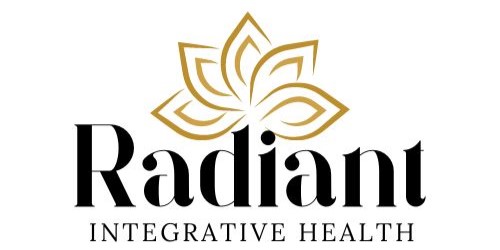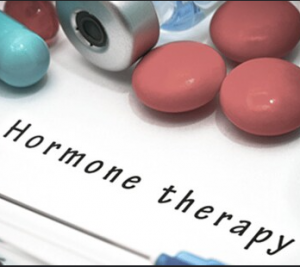Low T More Common
Low testosterone is no longer an aging issue. With 50% lower testosterone levels in obese teenage boys and ED becoming more common in men in their late 20’s to early 30s, indicates we’re facing a new health crisis. This, in fact, can lead to other chronic diseases.
We are bringing to the forefront and sounding the alarm on a critical health issue that underscores a significant shift in health trends. Historically, low testosterone (low T) was primarily associated with aging, but emerging evidence shows it is increasingly affecting younger populations. Here’s a breakdown of the issue:

Key Trends
1. Environmental and Lifestyle Influences:
o Endocrine Disruptors: Chemicals in plastics, pesticides, and personal care products may interfere with testosterone production.
o Sedentary Lifestyles: Reduced physical activity is linked to lower testosterone levels and poorer metabolic health.
2. Obesity and Metabolic Health:
o Obesity has been directly linked to lower testosterone levels in males, including teenagers. Excess fat, particularly visceral fat, increases the activity of aromatase, an enzyme that converts testosterone into estrogen, reducing testosterone availability.
o Obese teenage boys are reported to have up to 50% lower testosterone levels compared to their peers, contributing to delayed puberty and other health issues.
3. Chronic Stress:
o Elevated cortisol from chronic stress can suppress testosterone production.
o Sleep disorders, like sleep apnea, which are often undiagnosed in younger men, further impact hormone levels.
4. Erectile Dysfunction (ED) in Younger Men:

o ED is becoming more prevalent among men in their 30s and even younger. Contributing factors include:
§ Poor cardiovascular health
§ Stress, anxiety, and depression
§ Lifestyle choices like poor diet, physical inactivity, and substance use
§ Hormonal imbalances, including low T
The Broader Health Implications
Low testosterone and early ED signal broader health challenges:
· Increased risk of metabolic syndrome, type 2 diabetes, and cardiovascular diseases.
· Mental health issues like depression and reduced quality of life.
· Lower fertility rates due to declining sperm quality.
Potential Solutions
1. Lifestyle Interventions:
o Weight management, regular exercise (especially resistance training), and a balanced diet (rich in zinc, vitamin D, and healthy fats) can help boost testosterone levels.
o Addressing sleep hygiene and reducing stress are also critical.
2. Medical Screening and Awareness:
o Earlier screening for low T in at-risk populations (e.g., obese individuals, men with ED).
o Greater awareness among healthcare providers about the shifting demographics of low T.
3. Policy and Environmental Changes:
o Regulation of endocrine-disrupting chemicals.
o Promoting healthier lifestyle habits from an early age.
Testosterone Replacement Therapy (TRT) has proven to have a positive effect on physical health as well as mental well-being. While TRT is often associated with improved energy, muscle mass, and sexual function, its role in mental health is increasingly recognized as one of its most impactful benefits. Here’s how TRT positively influences mental health:
1. Mood Regulation
· Testosterone plays a critical role in regulating mood. Low testosterone levels are often linked to:
o Depression: Men with low T frequently experience symptoms of depression, such as persistent sadness, lack of interest, and fatigue.
o Irritability: Emotional instability or mood swings can occur when testosterone levels are deficient.
· How TRT Helps:
o Restoring testosterone levels often alleviates depressive symptoms and enhances emotional stability.
o Many patients report improved feelings of optimism and reduced irritability after starting TRT.
—
2. Cognitive Function and Clarity
· Low testosterone is associated with “brain fog,” difficulty concentrating, and memory issues.
· How TRT Helps:
o TRT has been shown to improve cognitive performance, particularly in areas like attention, memory, and decision-making.
o It may also reduce the risk of cognitive decline with aging by supporting brain health and neuronal function.
—
3. Anxiety Reduction
· Testosterone has anxiolytic (anxiety-reducing) properties. Low T levels can contribute to heightened stress and anxiety responses.
· How TRT Helps:
o By restoring testosterone to optimal levels, many men experience a greater sense of calm, reduced anxiety, and improved resilience to stress.
—
4. Increased Motivation and Drive
· Low testosterone can lead to reduced motivation, apathy, and lack of interest in daily activities.
· How TRT Helps:
o TRT often enhances motivation, energy, and the drive to achieve goals, contributing to overall mental well-being and productivity.
—
5. Improved Sleep Quality
· Poor sleep is a common symptom of low testosterone and a contributor to mental health challenges like depression and irritability.
· How TRT Helps:
o Better testosterone balance supports improved sleep patterns, leading to more restorative rest and enhanced mental health.
—
6. Social and Interpersonal Benefits
· Low testosterone can diminish confidence and self-esteem, negatively impacting social interactions and relationships.
· How TRT Helps:
o Men on TRT often report improved confidence, which enhances their relationships, communication, and overall social satisfaction.
—
7. Potential Neuroprotective Effects
· Research suggests that optimal testosterone levels may protect against neurodegenerative diseases like Alzheimer’s and Parkinson’s.
· How TRT Helps:
o By reducing inflammation and supporting brain health, TRT might contribute to long-term mental health and cognitive preservation.
—
8. Sexual and Emotional Well-Being
· Sexual health and satisfaction are deeply connected to emotional and mental health. Low libido and erectile dysfunction (common symptoms of low T) can cause frustration, stress, and relationship strain.
· How TRT Helps:
o By improving sexual function and satisfaction, TRT contributes to better emotional and relational well-being.
—
Important Considerations
· Individualized Therapy: The benefits of TRT depend on personalized treatment plans that account for each patient’s baseline levels, symptoms, and health status.
· Monitoring and Adjustment: Regular follow-ups are essential to optimize therapy and minimize potential side effects, such as elevated red blood cell count or hormonal imbalances.
· Lifestyle Synergy: Combining TRT with healthy lifestyle changes—like diet, exercise, stress management, and sleep hygiene—maximizes mental and physical health outcomes.
Conclusion
The rise in low testosterone and ED among younger males represents a new public health challenge. Tackling this issue requires a multi-faceted approach, combining individual interventions and public health measures to address the underlying causes.

At Radiant Integrative Health we understand that hormonal imbalances can affect more than just your physical health. Low testosterone can have a profound impact on your mental health and overall well-being. Testosterone Replacement Therapy (TRT) is widely recognized for its ability to enhance physical strength, energy, and vitality, but one of its most significant benefits is its positive effect on mental health.
Get Started with Radiant Integrative Health
Our providers at Radiant Integrative Health are dedicated to helping you regain control over your health and well-being. With our expert guidance, you can experience the full benefits of testosterone replacement therapy, including improved mental health and a better quality of life.

To learn more about TRT and how it can benefit your mental and overall health, contact Radiant Integrative Health at 702-333-8458. Let Radiant Integrative Health providers guide you in your journey towards a healthier, happier you.




